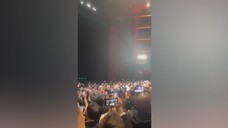Se hai scelto di non accettare i cookie di profilazione e tracciamento, puoi aderire all’abbonamento "Consentless" a un costo molto accessibile, oppure scegliere un altro abbonamento per accedere ad ANSA.it.
Ti invitiamo a leggere le Condizioni Generali di Servizio, la Cookie Policy e l'Informativa Privacy.
In evidenza
In evidenza
Temi caldi
PressRelease
ClinicAll: How blockchain technology will be applied to the digitisation of healthcare
PressRelease - Responsabilità editoriale di news aktuell
Blockchain lives at the apex of disruptive technologies. Experts term blockchain technology as a secure data storage platform and the key for digital transformation. A solution is only half the battle, healthcare data management requires consideration across data collection, security, accessibility and privacy. Blockchain and its inherent nature offers a holistic solution, however, lawmakers and regulatory bodies must pave the way for a new era of medical and healthcare services.
The management of personal medical records is a business problem worldwide. The healthcare industry is in dire need of digitisation, operating with antiquated information management systems, often decades behind when compared with other industries. According to Life Sciences research, patient data doubles every 73 days; as a result, invaluable data is often not recorded. This is caused by a high level of concern regarding data sensitivity, privacy and patient rights. Furthermore, access constraints due to legacy security protocols expose opportunities for data breaches and inhibit access to valuable data by third parties, such as research units.
Personal patient data had always been loaded with many issues - What data is to be collected? Who has the right to collect it? Who owns the information collected? How is this information to be used? And so on. As medical technology improves, medical records will consist of a comprehensive medical history; including vaccinations, routine checkups, documented incidents, insurance claims, lifestyle habits and potentially the subjects complete genome. Future implications of a medical data are misunderstood by most of the public, all of the data is extremely valuable and…
Read the full article on https://medium.com/@clinicallhealthcare/healthcare-meets-blockchain-b21bb5fd0138?postPublishedType=initial
Press contact:
ClinicAll/ Mrs. Lea Kelic
Visit ClinicAll @ clinicall.io
PressRelease - Responsabilità editoriale di news aktuell
Ultima ora
Ultima ora













